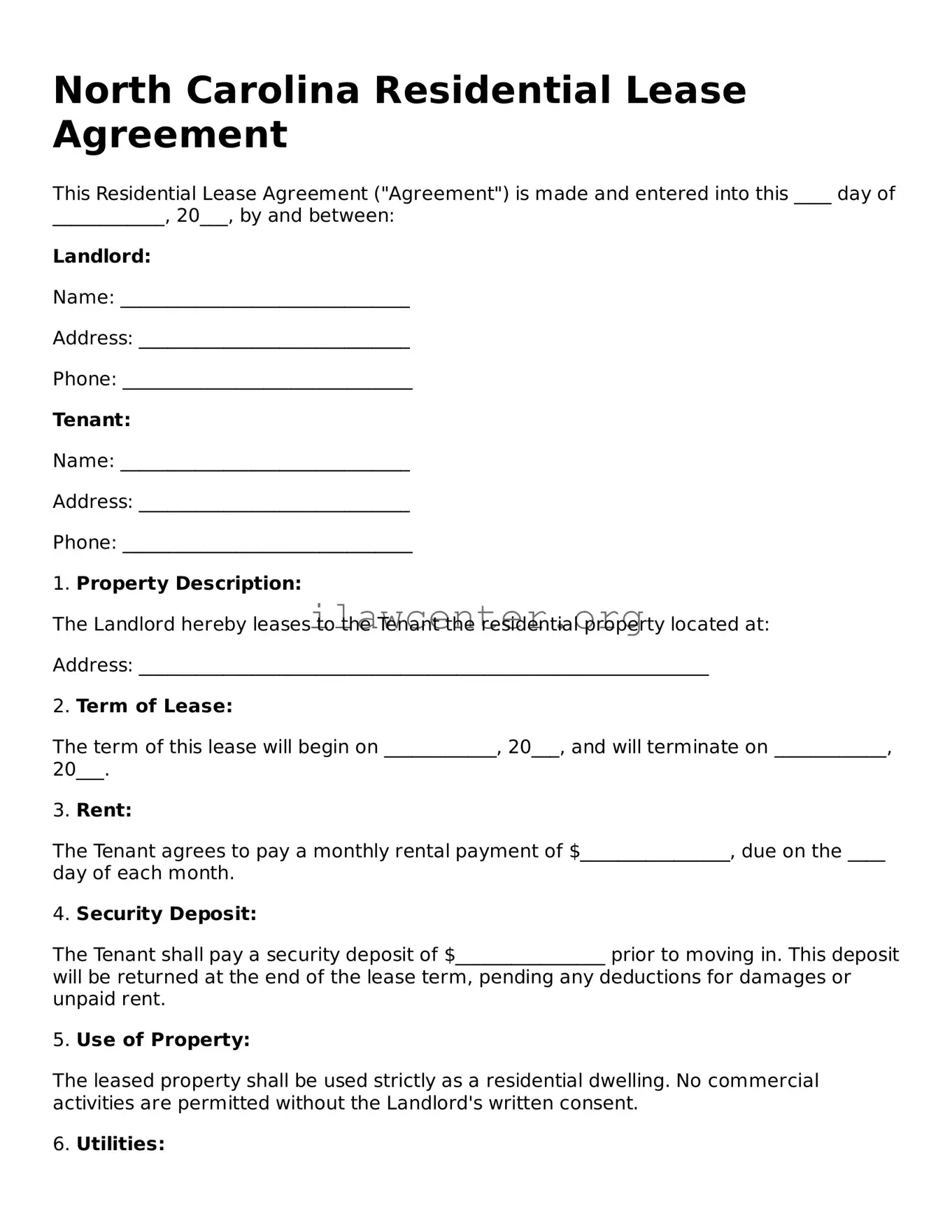What is a North Carolina Residential Lease Agreement?
A North Carolina Residential Lease Agreement is a legally binding document between a landlord and tenant outlining the terms and conditions for renting residential property. It includes details such as lease duration, rent amount, security deposits, and responsibilities of both parties.
What should be included in a Residential Lease Agreement?
The agreement should include the following key elements: names of both landlord and tenant, property description, lease term, amount of rent, due dates, security deposit details, maintenance responsibilities, and rules pertaining to pets or alterations. It may also cover termination rights and eviction procedures.
How long is the typical lease term?
In North Carolina, common lease terms are typically one year, but landlords and tenants can agree on shorter or longer durations. Month-to-month leases are also an option, providing flexibility for both parties.
Is a security deposit required?
Yes, landlords often require a security deposit, which cannot exceed two months of rent for residential leases in North Carolina. This deposit protects the landlord against potential damages or unpaid rent when the lease ends.
What rights do tenants have under the lease agreement?
Tenants have the right to a habitable living environment, privacy, and access to the agreed-upon amenities. The lease must be honored by both parties, and tenants can seek legal advice if they believe their rights are being violated.
Can a lease be terminated early?
Yes, a lease can be terminated early under certain circumstances, such as breach of contract, habitability issues, or mutual agreement between landlord and tenant. Tenants should carefully review the lease for specific terms regarding early termination.
What happens if a tenant fails to pay rent?
If a tenant fails to pay rent, the landlord can issue a notice to rectify the situation. This notice typically provides a period for the tenant to pay the overdue rent. If the situation is not resolved, the landlord may then pursue legal action to evict the tenant.
Are verbal agreements binding in North Carolina?
While verbal agreements can be legally binding, they are significantly more difficult to enforce than written contracts. It is strongly recommended to have all rental terms documented in a written lease to avoid misunderstandings and protect both parties.
What should a tenant do if they want to make changes to the lease?
If a tenant wishes to make changes to the lease, such as adding a roommate or making alterations to the property, they should consult the landlord. Any amendments should be agreed upon in writing and signed by both parties for clarity and enforceability.
Where can I obtain a North Carolina Residential Lease Agreement form?
A North Carolina Residential Lease Agreement can be obtained from various sources, including local real estate offices, online legal form websites, or through North Carolina landlord-tenant law resources. It is essential to ensure that the form complies with local legal requirements.
